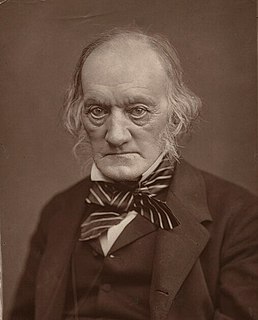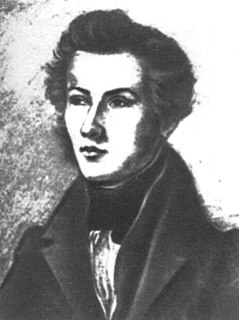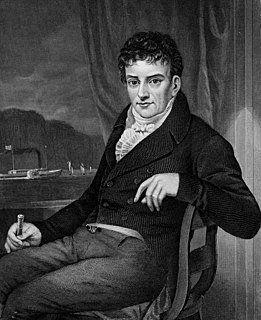A Quote by Richard Owen
The steam-engine in its manifold applications, the crime-decreasing gas-lamp, the lightning conductor, the electric telegraph, the law of storms and rules for the mariner's guidance in them, the power of rendering surgical operations painless, the measures for preserving public health, and for preventing or mitigating epidemics,-such are among the more important practical results of pure scientific research, with which mankind have been blessed and States enriched.
Quote Topics
Among
Applications
Been
Blessed
Conductor
Crime
Electric
Engine
Enriched
Epidemics
Gas
Guidance
Health
Important
Lamp
Law
Lightning
Manifold
Mankind
Measures
More
Operations
Painless
Power
Practical
Preserving
Preventing
Public
Public Health
Pure
Rendering
Research
Results
Rules
Scientific
Scientific Research
States
Steam
Storms
Surgical
Telegraph
Them
Which
Related Quotes
The US in some ways has been the best. Who figured out shale gas? Although that wasn't a good thing [for CO2 levels], it was very innovative. It's led to low-cost energy. Who figured out nuclear power? Largely the United States. Once you get past the steam engine, which is mostly British, then the US has been at the center of most of the energy things that have happened.
The hybridoma technology was a by-product of basic research. Its success in practical applications is to a large extent the result of unexpected and unpredictable properties of the method. It thus represents another clear-cut example of the enormous practical impact of an investment in research which might not have been considered commercially worthwhile, or of immediate medical relevance. It resulted from esoteric speculations, for curiosity's sake, only motivated by a desire to understand nature.
It takes a thousand men to invent a telegraph, or a steam engine, or a phonograph, or a photograph, or a telephone or any other important thing-and the last man gets the credit and we forget the others. He added his little mite - that is all he did. These object lessons should teach us that ninety-nine parts of all things that proceed from the intellect are plagiarisms, pure and simple; and the lesson ought to make us modest. But nothing can do that.
Procrustes in modern dress, the nuclear scientist will prepare the bed on which mankind must lie; and if mankind doesn’t fit—well, that will be just too bad for mankind. There will have to be some stretching and a bit of amputation—the same sort of stretching and amputations as have been going on ever since applied science really got going into its stride, only this time they will be a good deal more drastic than in the past. These far from painless operations will be directed by highly centralized totalitarian governments.
Medicine is the science by which we learn the various states of the human body in health and when not in health, and the means by which health is likely to be lost and, when lost, is likely to be restored back to health. In other words, it is the art whereby health is conserved and the art whereby it is restored after being lost. While some divide medicine into a theoretical and a practical [applied] science, others may assume that it is only theoretical because they see it as a pure science. But, in truth, every science has both a theoretical and a practical side.
The pure Christian State is a State in which theological law prevails. This law attains to real power or, to be more exact, absolute power, when through its results which are identical with those of opium, it puts all parts of humanity to sleep. If some occasionally awake they carry out crimes that horrify humanity which has not yet become Christian in the full sense of the word or has already abandoned the Christian framework.
There are fields of scientific work...which have been explored from the different sides of pure mathematics, statistics, electrical engineering, and neurophysiology...in which every single notion receives a separate and different name from each group, and in which important work has been triplicated or quadruplicated, while still other important work is delayed by the unavailability in one field of results that may have already become classical in the next field.
U.S. labor leaders will realize that automation can multiply man's wealth far more rapidly than it is multiplying at present and that automation will leave all men free to search and research... Realizing the direct competition with foreign industry on a straight labor basis will mean swiftly decreasing wages per hour and longer hours and decreasing buying power of the public.
Many of our students want to do what they have done and that has made them successful thus far in their lives: play by the rules, and do what is expected. But as much social science research and writing by Malcolm Gladwell, among others, make clear, the rules are mostly created by those already in power so obtaining power often entails standing out and breaking rules and social conventions.
My steamboat voyage to Albany and back, has turned out rather more favorable than I had calculated. The distance from New York to Albany is one hundred and fifty miles; I ran it up in thirty-two hours, and down in thirty. I had a light breeze against me the whole way, both going and coming, and the voyage has been performed wholly by, the power of the steam engine. I overtook many sloops and schooners beating to windward and parted with them as if they had been at anchor. The power of propelling boats by steam is now fully proved.




































